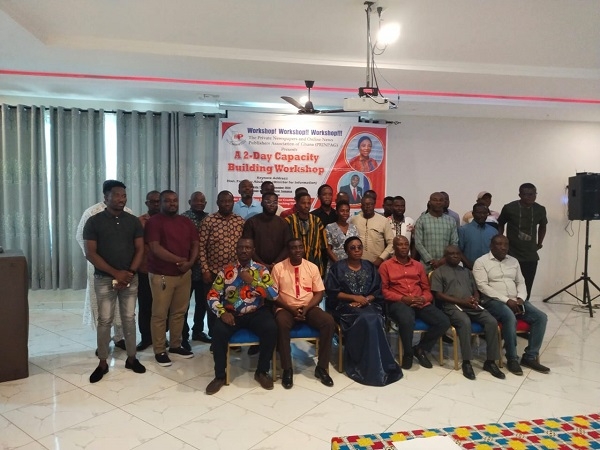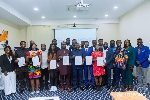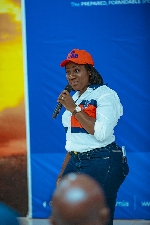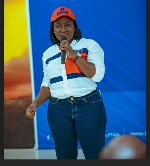PRINPAG President laments greed among media practitioners, calls for ethical journalism
 PRINPAG members in a group photograph with Information Minister
PRINPAG members in a group photograph with Information Minister
The President of the Private Newspaper and Online News Publishers Association of Ghana (PRINPAG), Mr. Andrew Arthur, has expressed concern over the high levels of greed and self-interest among media practitioners in the country.
He believes these behaviours have contributed to a disregard for journalistic ethics.
Speaking at a capacity-building workshop on election reporting for PRINPAG members in Somanya, Eastern Region, themed “Empowering Journalists for Credible Elections: Enhancing Reporting and Fact-Checking Skills,” Mr. Arthur emphasized that the powerful role of traditional media is being eroded by factors such as media fragmentation, greed, unnecessary politicization, discrimination, and a lack of adherence to professional standards.
“These negative practices have diminished the pride of the media as the Fourth Estate of the realm and led to reduced patronage, particularly of private newspapers.
Urgent measures are needed to reverse these trends, or the consequences for the industry will be disastrous,” Mr. Arthur warned.
He further noted that there is increasing evidence that people in authority and the general public are becoming reluctant to share important information with the media due to fears that sensitive details may be distorted or manipulated, largely because of the excessive politicization of the media landscape and the disregard for professional ethics.
In response to these challenges, Mr. Arthur said PRINPAG's current leadership is committed to implementing measures that will help restore trust in the media.
One such measure, he explained, is the workshop aimed at equipping journalists with the necessary skills and knowledge to report professionally on the upcoming general elections without bias.
The Minister for Information, Madam Fatimatu Abubakar, also addressed the workshop, urging media practitioners to guard against misinformation and disinformation, especially with the rise of social media.
She noted that while Ghana's 1992 Constitution prohibits censorship, it has inadvertently allowed some online platforms to engage in the spread of false information.
“Misinformation and disinformation have more severe impacts than even the COVID-19 pandemic, especially as we approach the crucial 2024 general elections,” she said, highlighting the need for responsible journalism to maintain public trust and ensure credible elections.
Source: Classfmonline.com/Cecil Mensah
Trending News

Jospong Group partners with Ghanaian scholars in diaspora to boost Ghana’s growth
16:22
Police foil highway robbery, gun down 3 suspects, retrieve 7 weapons
17:38
Ama Mawusi Foundation donates 600 food packs to street children in Greater Accra
16:11
Nation-first, principled and people-centred leadership wins us elections, and Bawumia stands for it – Akosua Manu to NPP
11:57
Jospong Group Chairman spreads New Year cheers with food, cash gifts for over 5,000 Ghanaians
16:06
MP raises insurance, public safety concerns after DVLA suspends new number plate system
11:52
Ghana to discover oil in Northern, Central and Volta Regions - Prophet Stephen Ask-Ackrong reveals
13:40
Bawumia doesn't want a single drop of blood to be shed on account of his personal ambition – Akosua Manu
11:39
Bawa Rock only successful applicant among 31 aggregator bid-Sammy Gyamfi reveals
00:58
Ebo Noah remanded, ordered to undergo psychiatric assessment over doomsday flood prophecy
14:40



